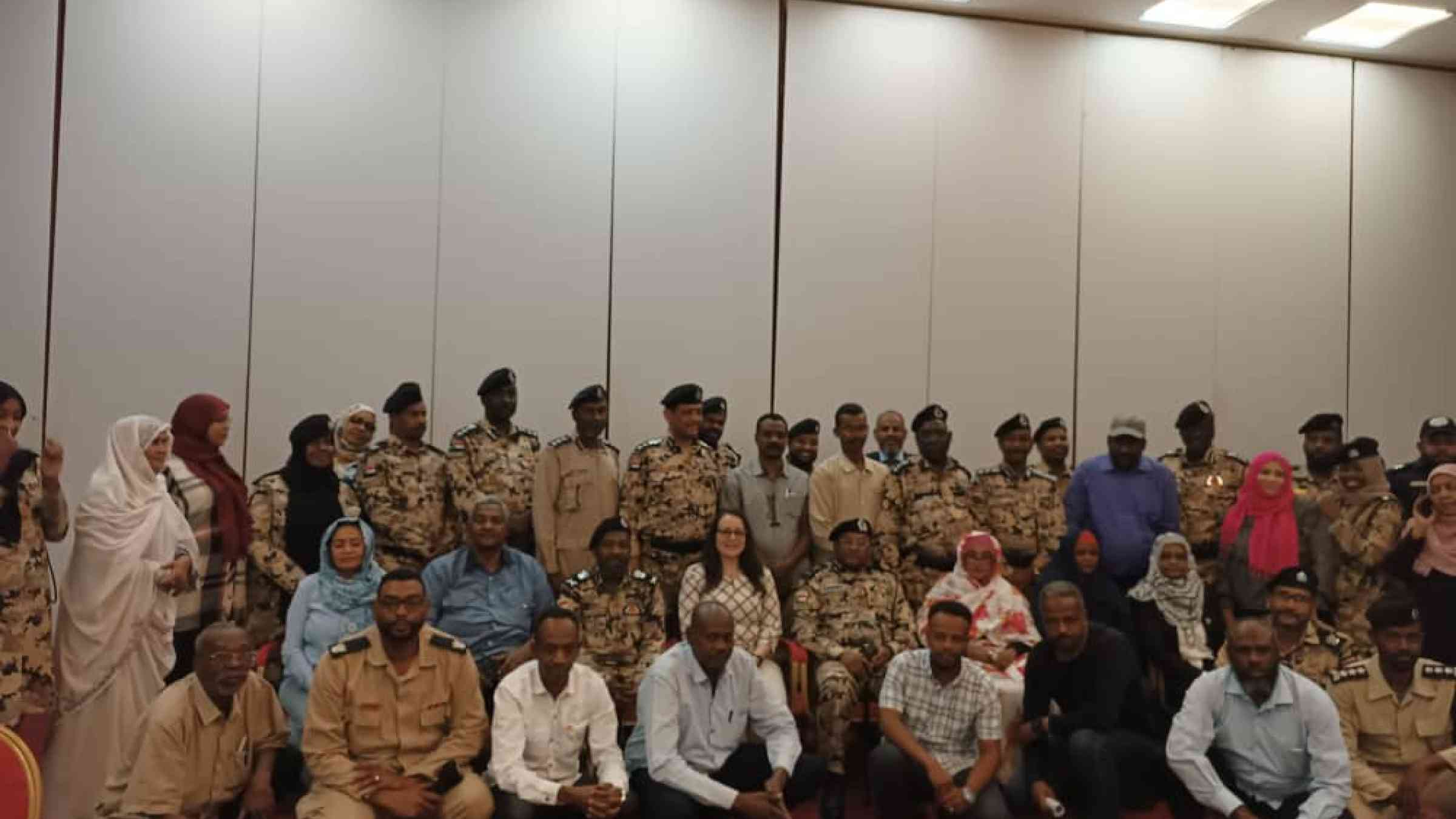Strengthening disaster risk reduction efforts in Sudan: Key takeaways from a 4-day workshop

Khartoum, 6-9 March 2023, The United Nations Office for Disaster Risk Reduction, Regional Office for Arab States, organized a 4-day national workshop in Sudan on Sendai Framework Monitor & Disaster Loss Accounting System to advocate the importance of disaster risk reduction governance, provide hands-on training on the use of Sendai Framework Monitor for reporting, and train participants on Disaster Loss and Damage Database through introducing "DesInventar-Sendai" system software and its methodology.
The Sendai Framework for Disaster Risk Reduction 2015-2030 marked a significant shift in managing disasters to managing risk and establishing resilience-building as a common denominator of the 2030 Agenda. Despite increased exposure and vulnerabilities, data loss collation at the national level remains a challenge. To address this, strong accountability is essential, and a set of 38 indicators were recommended to track progress in implementing the seven targets of the Sendai Framework.
The workshop came to enhance the understanding of interlinkages between the Sendai Framework, Paris Agreement, and Sustainable Development Goals and to deepen knowledge of the importance of monitoring the implementation of the Sendai Framework and providing meaningful analysis through the collection of disaggregated data on disaster losses. The availability of retrofitted disaster loss databases has helped establish national disaster loss databases, providing a basis for monitoring loss and damage and enabling the evaluation of the efficiency of risk reduction measures.
The workshop brought together 35 participants from 14 governmental agencies and ministries to exchange knowledge, skills, and best practices in disaster risk reduction. Participants engaged in interactive sessions, group discussions, and practical exercises, allowing them to learn from each other and deepen their understanding of the importance of building resilience through disaster risk reduction.
The workshop was a success, providing participants with the tools and knowledge to strengthen disaster risk reduction efforts at the national level. It highlighted the importance of building resilience through disaster risk reduction and the need for stronger accountability to track progress in implementing the Sendai Framework. It also emphasized the need for disaggregated data on disaster losses to inform decision-making on programs and resources to reduce risk. Building resilience to disasters is critical in achieving the 2030 Agenda, and workshops like these play a vital role in building capacity and strengthening disaster risk reduction efforts.
Disasters have a significant impact on Sudan, which is classified as one of the least developed countries (LDCs). Due to limited resources, the country is often unable to cope with the devastating effects of these events. Therefore, disaster risk reduction is critical in building resilience and achieving sustainable development in Sudan and other LDCs.
Despite progress in implementing the Sendai Framework, LDCs face several challenges in managing disaster risks, including insufficient investment in disaster risk reduction, limited access to technology and information, and weak institutional frameworks. To address these challenges, it is important to prioritize DRR in national development plans and allocate sufficient resources to build resilience. LDCs can also leverage the power of technology to strengthen early warning systems, improve risk assessments, and enhance communication during disasters.
In Sudan, UNDRR collaborated with the National Council of Civil Defense to address several key areas of work, such as drafting a plan for the National Platform for Disaster Risk Reduction to promote coordination among key DRR actors, conducting a feasibility study on a multi-hazard early warning system, and carrying out a scoping exercise for multi-hazard and multi-dimensional risk assessment. Additionally, UNDRR is implementing a global risk assessment framework and programs to facilitate the integration of climate change adaptation and disaster risk reduction through a comprehensive risk management approach.
Investing in disaster risk reduction in LDCs can yield significant returns, not only in reducing disaster losses and saving lives but also in supporting sustainable development goals. By building resilience, LDCs can create a more secure and prosperous future for their citizens.